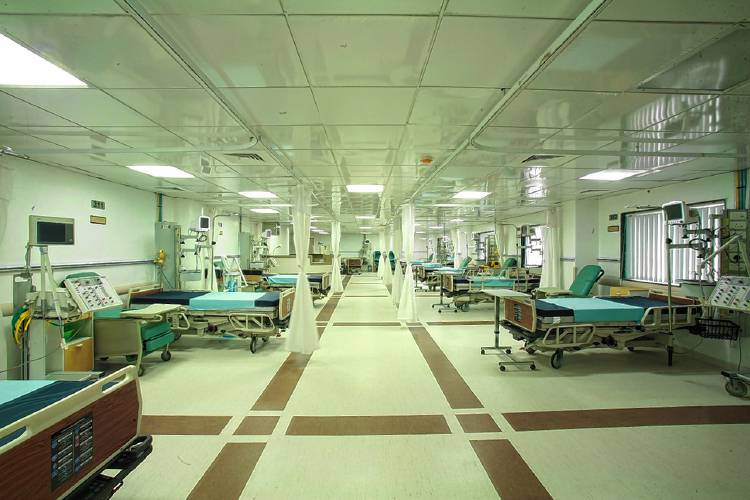Opinion: NH patients, and families, deserve better

Pixabay Pixabay
| Published: 01-09-2024 6:00 AM |
John Rodgers lives in Sunapee.
My mother passed away a year ago at a for-profit hospital in southeastern New Hampshire. A doctor called just after 10 p.m. to tell me a nurse had found her, it was likely a cardiac arrest, they would be moving her body. It all sounded very routine and impersonal, which made sense because I’d never met the doctor and she didn’t know my mother. Worse, my mom died alone. Earlier in the day a different doctor had told us that she was recovering from a recent UTI and just needed time. She and we didn’t get that time.
I know this story is and isn’t unique. But it must be told to help reveal the faults of a system that has reached a tipping point, turning healthcare into a profits-over-people business, where cost-cutting, higher prices and inadequate services take priority. Helping create and capitalizing on this crisis are giant corporations that seek to acquire, merge and consolidate. One such company is Hospital Corporation of America (HCA) Healthcare, owner and operator of more than 183 hospitals and some 2,300 “sites of care” in 21 states and the UK. It runs three hospitals in New Hampshire, and, unfortunately, my mom ended up in one.
HCA’s March 2020 $67 million acquisition of Frisbie Memorial Hospital in Rochester drew scrutiny, especially from those who worked for the hospital. Because of cuts associated with the takeover, 12 of 14 primary care doctors left the hospital’s practices, reportedly leaving thousands of patients without care. As one doctor, a former president of the NH Medical Society, described the acquisition, “…what I see is that they are working to serve their shareholders, and that that is more important to them than what is good for our communities.”
Last year, HCA ceased labor and delivery services at Frisbie, despite promising to keep them in operation until at least 2025. The services were no longer “financially viable,” a common phrase in HCA contracts, and the company had shifted funds to other services, thus satisfying the state.
HCA has a reputation in New Hampshire going back decades to when it acquired Portsmouth Regional Hospital. Its profit-focused agenda has drawn concern and criticism. Nevertheless, it has persisted and expanded. One lifelong family practice doctor with an office in Portsmouth, Dr. James Fieseher, wrote an op-ed after the HCA acquisition that explains how “loss leaders” in hospital services demand “squeezing” that entails cutting support staff while requiring that doctors do more in less time. This squeezing deprives primary care providers of essential support.
My mother lived all of her adult life in New London, a rural town with a college and a 25-bed hospital. A lifelong school teacher, she had a series of afflictions in her 70s that required hospital visits. New London Hospital cared for her like family. In December of 2022, she had symptoms of a UTI and went to New London’s ER. At 2 a.m. the doctor prescribed IV antibiotics, requiring she be admitted. But there were no open beds. After calling hospitals in the region and finding them also full, they wound up with Frisbie. By 4 a.m. she laid in the back of an ambulance bound for Rochester and her end.
The local community hospital is a dying breed, in a world where a new MRI machine costs more than $1 million, the radiologist makes an average of $360,000, the nurse may be “traveling,” making $10,000 a month, and Medicare negotiates bills down. Lost are the relationships in such a hospital, where the caregivers know the patients and their families by name, where empathy and accountability supersede profitability.
Article continues after...
Yesterday's Most Read Articles
 Most New Hampshire homes aren’t ‘aging-ready,’ which is a problem in a rapidly aging state
Most New Hampshire homes aren’t ‘aging-ready,’ which is a problem in a rapidly aging state
 Celebrating National Ice Cream Day with Richardson’s Farm: ‘Nobody else does what we do’
Celebrating National Ice Cream Day with Richardson’s Farm: ‘Nobody else does what we do’
 Don Brueggemann, owner and manager of The Works Café, retires after 30 years downtown: ‘A great run’
Don Brueggemann, owner and manager of The Works Café, retires after 30 years downtown: ‘A great run’
 Riverbend to close adult mental health housing facility in Concord due to funding challenges
Riverbend to close adult mental health housing facility in Concord due to funding challenges
 Surplus seller Ollie’s enters New Hampshire, opens in Belmont
Surplus seller Ollie’s enters New Hampshire, opens in Belmont
 Free speech group, residents back Bow parents’ appeal in case involving transgender athletes
Free speech group, residents back Bow parents’ appeal in case involving transgender athletes
When I entered my mom’s ICU room at Frisbie, she greeted me with a smile. An affable nurse was helping her eat. Things looked good: her vitals were stable and she only seemed slightly confused, a UTI symptom. I soon realized we were far from home when the case worker arrived to fill out an admission form, telling me I’d have to produce legal documentation if I wanted to take any part in my mom’s care. This struggle continued even after I provided the proper documents from my mom’s attorney. It took almost a week for the hospital to give my sister, a nurse in Texas, access to the patient portal so we could know what the doctors were noting every day (because I never saw them).
My mom’s transfer out of the ICU revealed a staff shortage so extreme that I rarely saw the charge nurse. During the Christmas weekend, the hospital staff essentially vanished. My mom lost the ability to communicate and began jerking her head unceasingly. When my sister and I suspected the antibiotic, the doctors dismissed the idea. Days later, when they ended the antibiotic, my mom regained her senses. Yet because she’d been so weakened and was deemed unable to safely eat, a feeding tube was put in. But the nurses seemed inept at placing the tube and my mom suffered.
There are so many more disturbing details beyond the doctors’ dismissive attitudes and the nursing staff’s negligence. I reckon the staff shortages contributed to many of the failures. But the lack of empathy still stings. Maybe that’s the most disheartening and frightening aspect of for-profit, corporate-run hospitals.
A few days before my mom’s passing, the hospital moved her to a room where she wasn’t on a monitor. “She’s doing better,” they told me. But she didn’t look better and she wouldn’t even drink her favorite coffee.
I called the hospital back the night my mom passed and the nurse who’d found her answered. She had found her unresponsive and after trying to rouse her, she’d felt her forehead. It was cold. Three weeks after arriving at Frisbie my mom was gone — a kind, old, sick lady, not worth much to people and corporations chasing the bottom line. Patients, families and communities in New Hampshire and beyond deserve much better.







 Opinion: Trumpism in a dying democracy
Opinion: Trumpism in a dying democracy Opinion: What Coolidge’s century-old decision can teach us today
Opinion: What Coolidge’s century-old decision can teach us today Opinion: The art of diplomacy
Opinion: The art of diplomacy Opinion: After Roe: Three years of resistance, care and community
Opinion: After Roe: Three years of resistance, care and community
